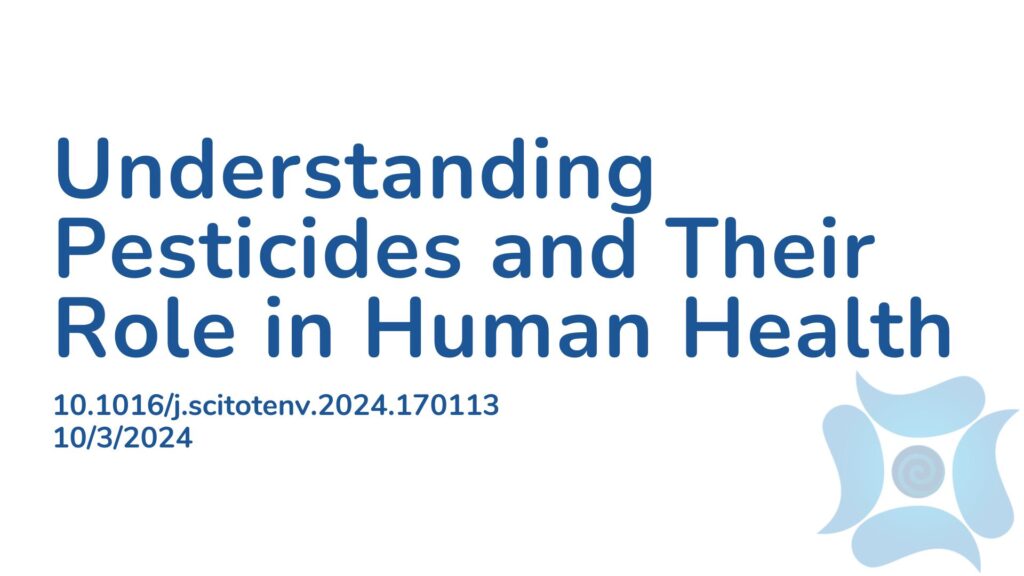Summary:
This study examined the impact of pesticides, including endocrine-disrupting chemicals (EDCs) and heavy metals, on health and the environment. It discusses the historical use of pesticides, their use in food and how they negatively impact human health. The study also explores pesticide residue in common foods and drinks, emphasizing the persistence of these chemicals. Various types of pesticides and their classifications based on chemical makeup are outlined, with a focus on synthetic and natural pesticides. The health implications of exposure to specific pesticide classes, such as organophosphates, are discussed, including links to neurological issues and reproductive problems. The article highlights that an increased use of pesticides had a detrimental impact on health and the environment and that excessive exposure to pesticides can lead to many serious health problems.
Abstract:
Pesticides are chemical substances of natural or synthetic origin that are used to eradicate pests and insects. These are indispensable in the agricultural processes for better crop production. Pesticide use aims to promote crop yield and protect the crops from diseases and damage. Pesticides must be handled carefully and disposed of appropriately because they are dangerous to people and other species by default. Environmental pollution occurs when pesticide contamination spreads away from the intended plants. Older pesticides such as lindane and dichlorodiphenyltrichloroethane (DDT) may remain in water and soil for a longer time. These accumulate in various parts of the food chain and cause damage to the ecosystem. Biological techniques in the management of pest control such as importation, augmentation, and conservation, and the accompanying procedures are more efficient, less expensive, and ecologically sound than other ways. This review mainly focuses on the consequences on the targeted and non-targeted organisms including the health and well-being of humans by the use of pesticides and their toxicity. The side effects that occur when a pesticide’s LD50 exceeds the accepted limit through oral or skin penetration due to their binding to various receptors such as estrogen receptors, GABA, EGFR, and others. These pesticide classes include carbamates, pyrethroids, organochlorides, organophosphorus, and others. The current study seeks to highlight the urgent requirement for a novel agricultural concept that includes a major reduction in the use of chemical pesticides.
Article Publication Date: 10/3/2024
DOI: 10.1016/j.scitotenv.2024.170113




